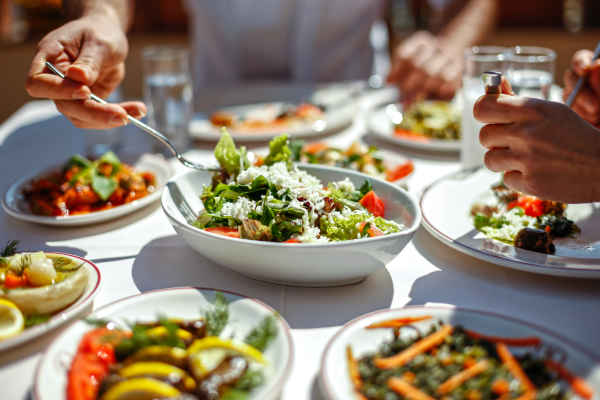
While travelling, it's easy to get distracted. We get so swept up in our new surroundings and adventures, that sometimes we forget about the little decisions we make along the way, and the effects they can have on the environment. Here's a list of easy tips to make sure you're thinking green while you're on the road!
Re-use your drink bottle
While it may just seem like another thing to cart around with you, there are so many benefits to carrying your own drink bottle while traveling. You save a tonne of money by not buying a drink while you’re out exploring, and you’re also saving the turtles by not purchasing drinks that come with straws. Additionally, there are so many fancy bottles on the market that can cater to your specific travel needs, such as a Hydroflask for keeping your water icy cold or boiling hot for hours, or bottles like Life Straw or Water Well that filter all the nasties out of your water, so you can drink from the tap without worrying about tummy bugs. And the biggest advantage of all? You’re not going to be adding to the 60 million plastic bottles that end up in landfill each year. Cheers to that!
BYO shopping bag
Shopping bags are shocking for the environment and although Europe, Australia, New Zealand and the United States are making a move to ban them or at least charge for them in stores, there are many parts of the world that still use unnecessary amounts of packaging and provide carry bags for every single shopping item. I would recommend bringing your own tote bag or drawstring backpack with you when you head out the door, so you always have a bag on hand for unexpected purchases. Bonus? A bag is a great, guilt-free souvenir from where you’ve visited, as it’s so lightweight and practical. It’s a win-win!
Invest in good quality travel equipment
Though you’re probably busy saving every penny before leaving for a trip, it is worth investing in good quality bags and shoes before hitting the road. Whether you decide to use a backpack, hybrid (backpack with wheels) or a suitcase, definitely make sure you’re getting something that will last. Zippers and wheels are usually the first things to break and are almost impossible to repair, causing you to have to buy a whole new bag which is costly, wasteful and inconvenient, especially if you’re not in a major city. The other must-haves are comfortable, durable shoes. During my long-term trips, I took a pair of black sneakers, dressy black ballet flats, and two pairs of sandals (Crocs and Tevas - comfort is more important than fashion when traveling, trust me!). These saved my feet and lasted all my months of adventuring, meaning I didn’t have to buy replacements from fast fashion chains.
Carry your own essentials
If you’re serious about reducing the amount of waste you create in your daily life, then carrying a few basic essentials like cutlery, a travel mug and a medium sized container can make a huge difference. I carried a container to store my leftover meals that I’d cooked in my hostel kitchen, which cut down on food wastage and saved a lot of money. When I was traveling, I would store my stash of tea bags in the container so that I wasn’t wasting space, or would use it as a bowl for breakfast when I was on the go. With more than 16 billion takeaway coffee cups going to landfill each year, I also found a reusable mug handy when I was stopping at rest stops on Busabout travel days, or when I was staying in hotel rooms that didn’t provide many utensils.
Be a hotel eco hacker
If you’re living the glam life and staying in hotels, then lucky you - treat yo’ self! However, hotels are notorious for wastage, so implementing these simple hacks can allow you to enjoy the luxury without being excessive. Hotel laundry wastes ridiculous amounts of water, so re-using your towel and sleeping in the same sheets during your stay is an easy sacrifice to make. Also, while those tiny bottles of shampoo or individually packaged ear buds are a novelty, they’re also a terrible examples of short-term, single use plastic, so I would recommend bringing your own toiletries, or at least making sure you use the entire bottle if you open the amenities provided.
Dispose of rubbish correctly
Sure, some parts of the world are still developing their waste management techniques, and in some places, you’re lucky to find a bin on the street at all. However, in many destinations like Europe, Australia, New Zealand and the United States, everything from rubbish bins to the trash cans in hostel kitchens are divided into at least recyclables and non-recyclables (some are then divided further into organic waste, paper, recycling and non-recyclable plastic waste). It only takes a few extra seconds to pay attention to the bin you’re about to place your trash into, so make sure you’re recycling and separating the different materials when you can. A little goes a long way!





